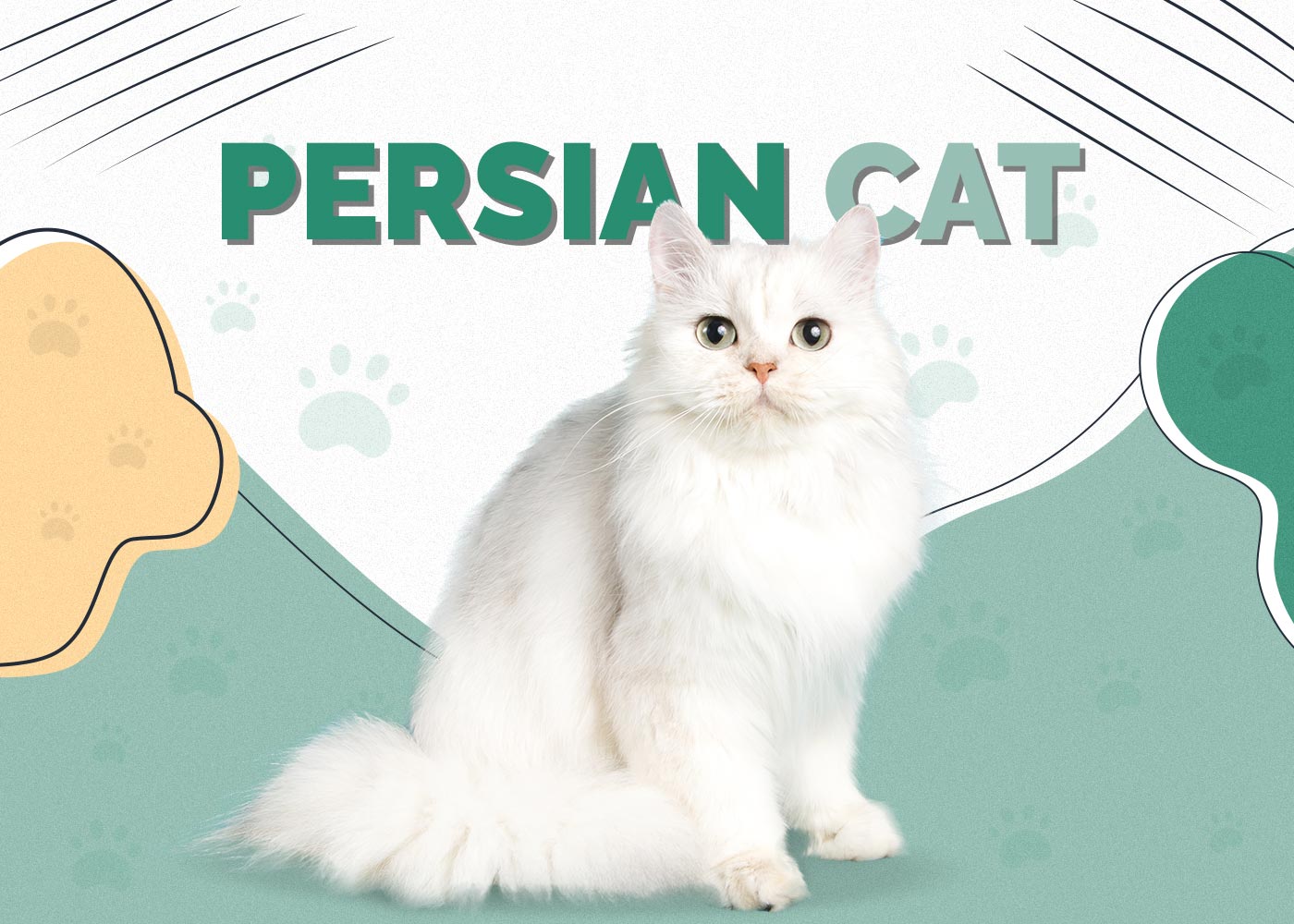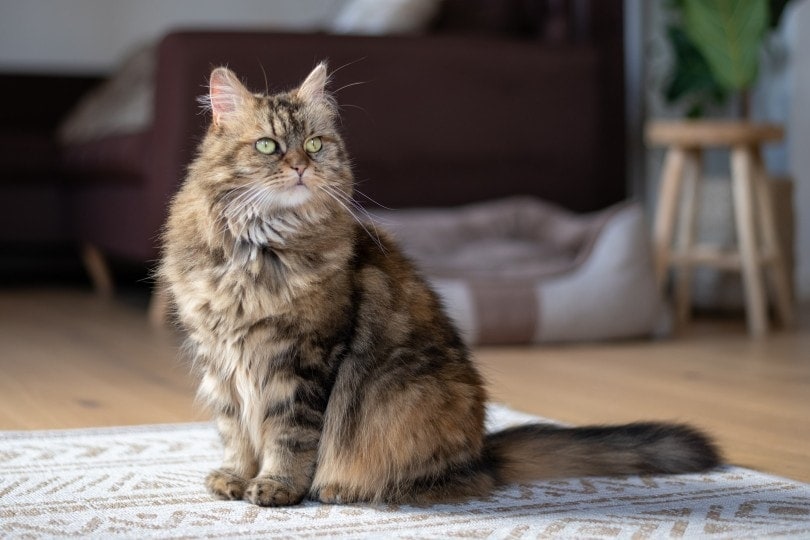Can Cats Eat Chicken Noodle Soup? Vet-Verified Facts & FAQ
By Jordyn Alger
Updated on

Click to Skip Ahead
You may have a growing appetite for soup as the weather gets cold. There are few better ways to warm yourself than snuggling up in a blanket with a hot bowl of chicken noodle soup. But what about our cats? Can they partake in this cozy routine? While cuddling in a blanket can be enjoyable for cats, keeping the chicken noodle soup away from your pet is best.
If your cat sneaks a lick of chicken noodle soup, don’t panic. Chicken noodle soup is not usually toxic for cats; however, concerning ingredients make it unadvised for feline consumption. In this article, we’ll discuss how the common ingredients in chicken noodle soup affect cats and offer alternatives for your cat to enjoy.
Common Ingredients in Chicken Noodle Soup
Every chicken noodle soup recipe is unique. You likely have a family recipe that has a special flair. Therefore, it is impossible for us to discuss every single possible ingredient that may be in your soup, but we will stick to some of the most common ones.
- Chicken
- Noodles
- Chicken broth
- Celery
- Carrots
- Onions
Some of these ingredients are perfectly fine for your cat to eat, and others are dangerous. Below, we will go over how these ingredients can impact your cat.
How Chicken Noodle Soup’s Common Ingredients Can Affect Your Cat
Before feeding anything new to your cat, it is best to consult your vet. Even the healthiest ingredients in chicken noodle soup must be fed to your pet in moderation to ensure their health. To verify that you provide your pet with a wholesome and balanced diet, make an appointment with your vet and collaborate on a dietary plan for your cat.
Chicken
Chicken is a tasty, nutritious treat for cats. Since chicken is high in protein, it is not only safe to feed to your cat, it is beneficial. When serving chicken, ensure the meat is thoroughly cooked to avoid feeding your cat bacteria that could make them sick.
You can prepare the chicken by baking or boiling it, but unhealthy methods such as deep-frying should be avoided. Similarly, no seasonings or flavors should be added to the chicken. Spices and herbs can cause an upset stomach, while onions and garlic are toxic, so plain-cooked chicken is best.
For healthy cats with no dietary restrictions, small pieces of chicken can be given as a treat. A 1-inch cube without bones or skin is ideal.
Noodles
Plain pasta noodles are not toxic for cats but are not recommended. Cats are obligate carnivores, meaning they need lots of meat in their diet to meet their nutritional needs. This also means that they do best on a low-carb diet.
Therefore, while a plain-cooked noodle isn’t likely to harm your cat, it doesn’t benefit them either. If they eat an excessive amount of carbs, they can experience digestive issues.

Chicken Broth
Some chicken broths can be great for your cat, while others can be unhealthy. It all comes down to the ingredients. A plain, homemade, chicken broth with no added ingredients or sodium is okay for your cat in moderate quantities.
However, most store-bought chicken broths contain high amounts of sodium, which is unhealthy for your cat. Cats need sodium, but their cat food contains the appropriate levels, and they don’t need salt added to their diet. In addition, if your cat had kidney problems they may not be able to cope with excessive sodium. Some chicken broth products contain onions, and we will discuss the risks below.
Therefore, chicken broth can be given to your cat, but the chicken broth in your chicken noodle soup could be high in sodium. It may even contain other harmful seasonings, so keeping the broth of your chicken noodle soup away from your pet is best.
Celery
Celery is one of the many vegetables that are healthy as a snack for your cat. It is a fibrous veggie that is low in calories but high in nutrients. It is also packed with water, so it can help hydrate your cat. While celery is healthy for your cat, it is best not to serve the pieces from chicken noodle soup (especially if it has other questionable ingredients).
Fine-chopped celery is the best since larger chunks are choking hazards. Also, be wary of the stringy pieces along the outer curve of the celery stalk; they could get stuck in your cat’s throat.
Carrots
Carrots are root vegetables with plenty of antioxidants, vitamins, and minerals. They can also be a great treat for your cat. As with celery, feeding these veggies separately from the soup in small, bite-sized pieces is best.

Onions
This is perhaps the most concerning ingredient in chicken noodle soup. While onions provide healthy benefits for humans, they present a significant risk to your cat’s health. Onion, along with several other members of the Allium family, can destroy your cat’s red blood cells.
Red blood cells are necessary for transporting oxygen throughout the body. As your cat’s red blood cell count diminishes, they may experience anemia. As their condition worsens, they may go into a state of shock which can damage vital organs. In the worst-case scenario, ingesting onions is fatal.
If onions are included in your soup in any way, it is vital that you keep the soup away from your cat. Cooked onions are no less toxic to your cat than raw onions. If onion powder is used in your recipe rather than onions, your cat is at even greater risk, as onion powder is more potent than fresh onions.
 Alternative to Chicken Noodle Soup for Your Cat
Alternative to Chicken Noodle Soup for Your Cat
Chicken noodle soup is not a safe meal for your cat, but that doesn’t mean you can’t treat them to a cozy comfort food during the colder months. A good alternative to chicken noodle soup is plain, low-sodium bone broth.
Benefits of Bone Broth
Bone broth can be bought commercially, specifically designed for cats. It is delicious and nutritious, although your cat doesn’t strictly need it if they are on a good quality diet.
You will need to purchase feline-specific bone broth or cook your own recipe at home. If you plan to make the bone broth yourself, budget your time appropriately. It can take longer than 20 hours to make bone broth, so you will need a slow cooker to make it. Just be sure to avoid any garlic or onions in the recipe.

Frequently Asked Questions (FAQ)
If you are curious to learn more about how chicken noodle soup may affect your cat, take a look at the frequently asked questions below.
Can Cats Eat Canned Soup?
Canned soup is not recommended for cats due to the high levels of sodium. Likewise, many canned soups contain unhealthy or harmful ingredients for cats, so it is best to feed your cat a feline-specific diet rather than a meal for a human.

Are There Other Risks to Feeding Your Cat Chicken Noodle Soup?
In addition to the harmful ingredients in chicken noodle soup, it is possible the hot temperature of the soup can harm your cat. They can accidentally burn their tongue, mouth, or lips if they try to ingest something too hot.
What Happens if Your Cat Eats Chicken Noodle Soup?
If your cat lapped up a bit of chicken noodle soup, your response may vary depending on the ingredients. If there is nothing toxic in the soup, monitor your cat for digestive issues and call your veterinarian if they seem unwell. If onions or other toxic ingredients are included, it is advised that you call your vet right away.
Now that you know what you can safely feed your cat, it’s just as important to find a bowl that supports their health and well-being. With whisker-friendly bowls and a wide tray to catch any spills, our Hepper NomNom Cat Bowl is our favorite option.
Final Thoughts
Chicken noodle soup is not an ideal treat for your pet due to the ingredients. Homemade soup that doesn’t include garlic, onions, or loads of salt is healthier than canned products. However, bone broth is a great alternative. If you want to treat your pet to a cozy meal, give them bone broth and enjoy a tasty meal together.
Featured Image Credit: Dmitry Melnikov, Shutterstock














